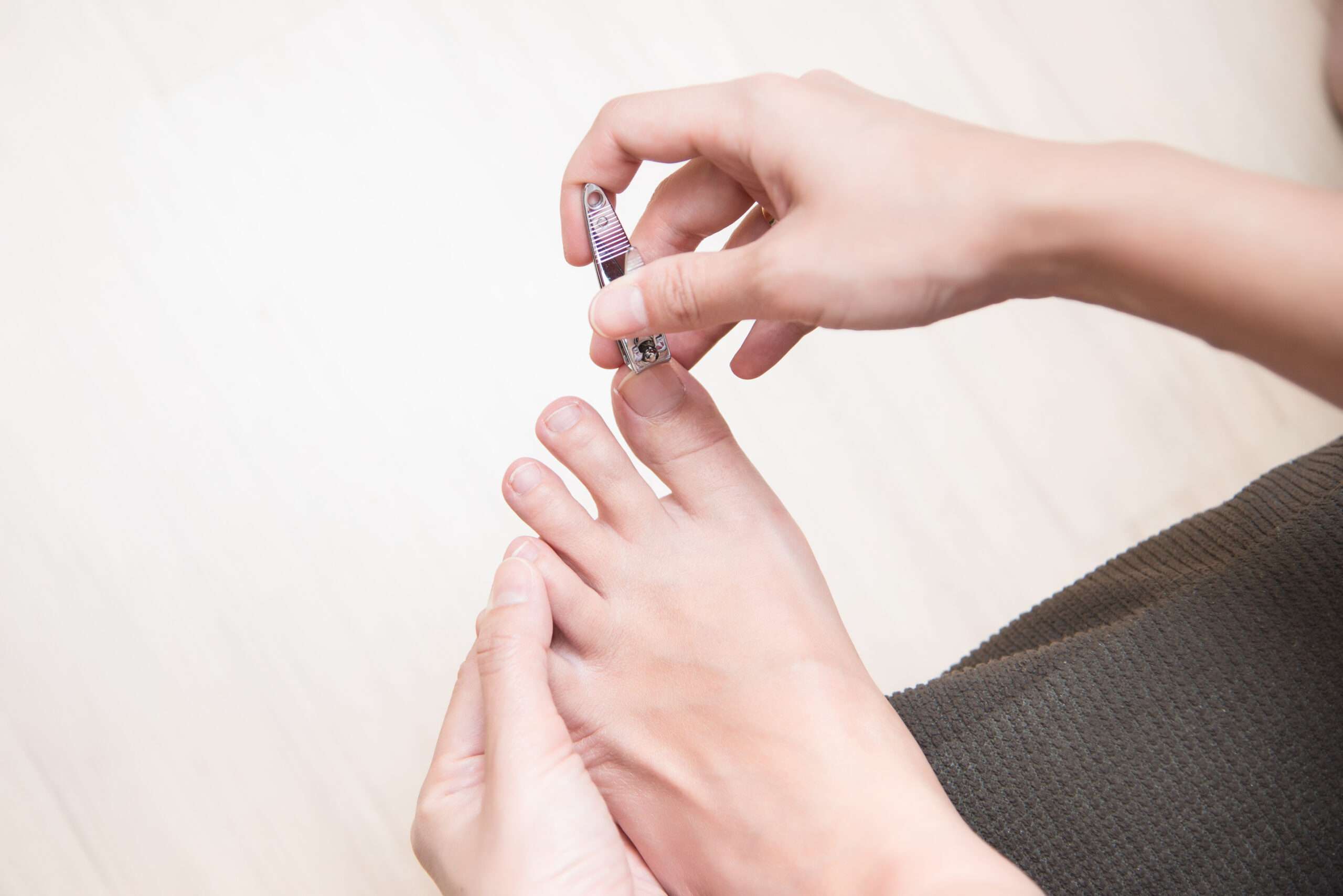Treating an ingrown nail at home is quite possible. And not treating it can cause consequences and increase your pain. That’s why it’s important to know a few tips to properly treat your ingrown toenail at home.
An ingrown toenail (also called onychocryptosis) occurs when the nail pushes against and into the skin of the toe. If not treated properly, an ingrown toenail can worsen, causing inflammation or infection of the toe.
Several causes that can trigger this unpleasant phenomenon include:
- improper trimming of the nails
- poor foot hygiene
- shoes that are too tight
- direct trauma to the nail
- foot onychomycosis
Luckily, there are several home remedies available to treat ingrown toenails.
Antiseptic solution
As soon as the first symptoms of an ingrown toenail appear (redness in the toe region, swelling of the skin or pain), it is important to soak your foot in a saline solution (Epsom salts are strongly recommended) or an antiseptic solution.
Place warm water in a foot basin or your bath and add a bit of antibacterial salt or soap. Then soak your foot for approximately 15 minutes.
A foot bath is important, as it then allows you to clean the infected area more easily.
Cotton swab or dental floss
After your foot has soaked in the bath, remove it and dry it well, then gently clean under the ingrown nail. Place a piece of cotton soaked in antibiotic cream (available over-the-counter) under the nail. This solution allows you to reposition the nail over the piece of cotton (rather than in the skin of the toe). Dental floss can also be used to help you distance the nail from the skin.
This home remedy for ingrown toenails is very effective. However, this treatment must be performed with care. Remember that it can also cause pain.
Antibiotic ointment
In addition to the foot bath, you can apply an antiseptic solution or antibiotic ointment to the ingrown toenail with a sterile pad. Repeat the operation two to three times a day. The products you will require are available at any pharmacy. For effective healing solutions for ingrown toenails, you need to seek out the advice of specialists.
Cutting your nails
While treating your ingrown nail at home, your affected nail will eventually grow back. Ensure that you trim it properly: straight and not too short. Moreover, this is the recommended method to avoid ingrown toenails.
However, do not trim your ingrown toenail if there is still inflammation. If in doubt, consult your podiatrist.
Open-toed shoes
While treating your ingrown toenail at home, ensure as much as possible that you do not restrict your feet wearing shoes that are too narrow or tight. It is better to choose open-toed sandals or a more comfortable shoe style (not too rigid or tight).
Seek the advice of a podiatrist
Ingrown toenail treatment at home sometimes requires follow-up with and advice from a professional, depending on the severity of your situation.
Your condition should show improvement within 7-10 days. If not, you must consult a footcare professional to avoid any further complications.
Certain types of individuals should consult a professional if they get an ingrown toenail:
- diabetics
- immunosuppressive individuals
- those being treated with hemodialysis
- people who have poor blood circulation in their legs
If you fall under any of these categories, under no circumstances should you attempt long-term treatment at home!
If in doubt, do not hesitate to consult a podiatrist. It is always more advisable to see a professional rather than try to resolve an uncertain situation by yourself.
Do not hesitate to consult a podiatrist for assistance as required. Your podiatrist will be able to assess the gravity of your situation and advise you accordingly. The podiatrist can perform a medical incision of your nail, prescribe the right cream, or, in some cases, perform painless surgery on the nail.
Want to learn more about how to treat ingrown toenails?
Visit PiedRéseau to learn more about the various options available to you!

